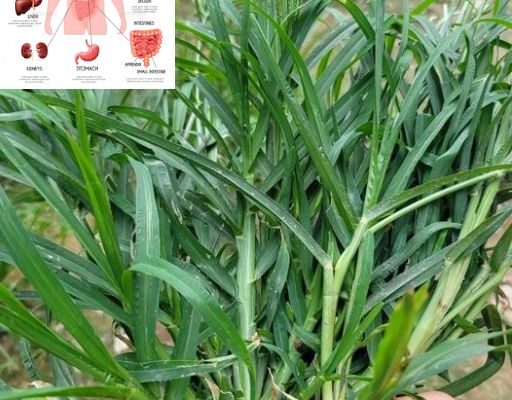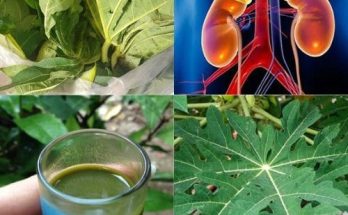Goosegrass (Eleusine indica), also known as Indian goosegrass, has been a staple in traditional medicine for centuries due to its cooling properties and ability to treat various ailments. Widely available across Vietnam and other parts of Asia, this humble herb is becoming recognized for its potential health benefits. Let’s take a look at how this medicinal plant can positively impact health, especially through a modern, American lens.
Overview of Goosegrass (Eleusine Indica)
Goosegrass is an annual herb commonly found in tropical regions. In Vietnam, it is known as “cỏ mần trầu,” while other countries may call it “goosegrass” or “wiregrass.” The plant typically grows in clusters, reaching heights of 12-20 inches. Its leaves are long, narrow, and grow in a loose, fan-like shape. Goosegrass flowers are small and form in spikes, making it easy to identify in the wild.
Historically, goosegrass has been utilized in Traditional Chinese Medicine, Vietnamese folk remedies, and even some African cultures. While its popularity in the U.S. is relatively recent, modern research is starting to uncover its wide range of medicinal properties.
Key Benefits of Goosegrass
1. Anti-inflammatory Properties
Goosegrass contains high levels of flavonoids, which are known for their anti-inflammatory effects. Research shows that the plant’s extract can reduce inflammation in the body, especially in cases of respiratory conditions like bronchitis or pneumonia. These benefits come from its ability to suppress pro-inflammatory enzymes, much like over-the-counter medications such as ibuprofen.
2. Fever Reduction
Goosegrass has been traditionally used to treat fever. Studies on animals have shown that goosegrass extract helps lower body temperature, acting similarly to common antipyretic drugs. This makes it a potential natural alternative for treating low to moderate fevers, without some of the harsh side effects associated with synthetic medications.
3. Blood Pressure Regulation
One of the most significant health impacts of goosegrass is its ability to help regulate blood pressure. In lab studies, goosegrass extract showed effectiveness in lowering blood pressure by dilating blood vessels and reducing arterial tension. For people with hypertension (high blood pressure), it could serve as a natural supplement alongside conventional medication, offering a gentler approach to maintaining heart health.
4. Liver Protection
In traditional Vietnamese medicine, goosegrass has been used to “cool” the liver and detoxify the body. Modern research supports this, suggesting that goosegrass has hepatoprotective effects. This means that it helps to protect the liver from toxins, including those related to alcohol consumption, fatty foods, and pollutants. It may also assist in lowering cholesterol levels, further protecting the liver and heart.
5. Kidney Function Support
Goosegrass is commonly used in Southeast Asia as a diuretic, helping to flush toxins out of the body through increased urine production. This has led to its use in treating urinary tract infections (UTIs) and supporting overall kidney function. The plant’s extracts help balance electrolytes and reduce kidney inflammation, making it a potential natural remedy for minor kidney issues.
Usage in Traditional and Modern Medicine
Traditional medicine often utilizes goosegrass in the form of teas, tinctures, or topical applications. Here’s how it’s commonly prepared:
- Fever and Heat Stroke Treatment: A decoction made by boiling goosegrass leaves can be consumed to reduce fever and combat symptoms of heatstroke.
- Skin Conditions: Goosegrass extract can be applied topically to treat minor skin irritations, such as rashes or insect bites, due to its cooling and anti-inflammatory properties.
- Hypertension: In traditional Vietnamese medicine, goosegrass is often prepared as a tea, consumed daily to help regulate blood pressure and cleanse the liver.
In a modern context, goosegrass is available in supplement form, offering a convenient way to take advantage of its numerous health benefits. While not yet a mainstream supplement in the U.S., its potential is becoming recognized among herbal enthusiasts and practitioners of alternative medicine.
Cultural Relevance and Future Potential
Although goosegrass may be a new concept for many Americans, it aligns well with current health trends emphasizing natural and plant-based remedies. Americans are increasingly interested in alternative treatments that focus on whole-body wellness and minimal side effects, making goosegrass an attractive option for those looking to supplement their health naturally.
In addition, goosegrass’s various health benefits, including its ability to reduce inflammation, regulate blood pressure, and support liver and kidney health, position it as a versatile herb with the potential to become a staple in U.S. herbal medicine. While more research is needed to confirm its efficacy in human trials, early studies and centuries of traditional use indicate that goosegrass could offer Americans a natural, multi-functional solution to everyday health issues.
Conclusion
Goosegrass (Eleusine indica) is a versatile herb with a rich history in traditional medicine, particularly in Asia. From treating fevers and reducing inflammation to supporting kidney and liver function, its health benefits are vast. As modern medicine continues to explore the potential of natural remedies, goosegrass may gain traction in the U.S. health market, offering Americans a new, natural option for improving overall wellness.



